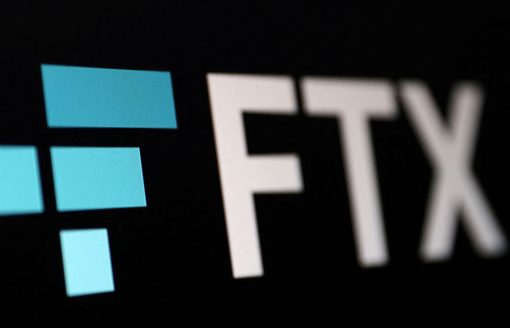For the first time ever, bitcoin transaction fees have increased to over $100, which has many worried about the currency’s usability and possible sell-offs.
- Transaction fees for bitcoin have increased dramatically, going above $100 for the first time ever.
- Concerns regarding storing and using Bitcoin have increased in the wake of the recent halving event.
- Small Bitcoin balances are being trapped by high fees, which exceed transaction costs and make them unusable.
Stay in the know on crypto by frequently visiting Crypto News Today
Transaction fees on the Bitcoin network are skyrocketing; on April 20, they broke through the $100 barrier for the first time ever. This development occurs soon after the most recent Bitcoin halving event, which halves the quantity of new Bitcoin that miners are rewarded with.
CryptoCaster Quick Check:
The Fee Increase Explained
The cost of a Bitcoin transaction depends on supply and demand. Users fight for space on the blockchain due to a fixed 10-minute block generation time and a limited block size. When users outbid one another to have miners prioritize their transactions, higher demand results in higher fees.
This is not like other cryptocurrency designs. While Litecoin (LTC) shortened block times, Monero (XMR) combined the two, and Nano (XNO) eliminated fees completely with a secure fee-less architecture, Bitcoin Cash (BCH) increased block sizes.
Concerns regarding a possible sell-off are raised by the extraordinary fee increase, as the expense of storing and transporting Bitcoin becomes unaffordable. The market waits to see if there is less demand for block space, which would result in cheaper prices. Users are left footing a steep price for each Bitcoin transaction in the interim, about four times the average daily income worldwide.
Elevated Bitcoin Transaction Costs Immobilize Minor Balances
Mempool.space data shows that over the previous 24 hours, users paid an average of $105.69 per transaction, which is equivalent to about 0.00166 BTC or 166,150 satoshis (sats, the smallest unit of Bitcoin). Remarkably, the fees for the last four blocks that were mined exceeded 1,072 sat/vB, or $100 for standard SegWit transactions (a method of reducing transaction size).
Prior to April 2021, the highest fee ever recorded in USD was $62.78, according to records. There are two sides to the fee increase. Users suffer severe consequences, but miners gain from the extra revenue stream, particularly following the reduction in block reward due to the halving.
Bitcoin Washout
The rise in “washout,” or small account balances and unspent transaction outputs rendered useless because fees exceeded their value, is one significant effect. Over half (53.94%) of all Bitcoin addresses, according to BitInfoCharts, have less than 0.001 BTC in them. When fees surpass $100, these balances are essentially “washed out.”
In addition, a lot of traders and investors store their Bitcoin on centralized exchanges and only sometimes remove it for long-term storage. Withdrawals are pricey due to high fees, which may cause people to sell their Bitcoin in order to convert it to cash or another cryptocurrency.
In Retrospect
- Globally, the average transaction fee is $100. Users who live in areas with lower average incomes might be more affected by the fee increase than those who live in wealthier areas.
- The adoption of Bitcoin as a regular payment method may be hampered by high transaction fees, particularly for smaller transactions.
This is Significant
The increase in transaction fees for Bitcoin raises questions about the scalability and accessibility of the cryptocurrency. Although miners profit in the short run, the high expense of transferring or storing small amounts of Bitcoin may cause users to sell their holdings and prevent the currency from becoming widely used.
CryptoCaster™ steadfastly upholds its dedication to keeping our global audience well-informed about the ongoing adoption of blockchain technology, as well as the latest hurdles emerging from government-controlled fiat financial systems, banking conglomerates, and other major institutional entities. Our commitment extends to providing comprehensive updates and insights into how these developments affect the broader landscape of digital currencies, the potential regulatory impacts on blockchain innovations, and the evolving dynamics between traditional financial institutions and emerging cryptocurrency markets. By staying at the forefront of these critical issues, CryptoCaster™ aims to empower our audience with the knowledge needed to navigate the complex interplay of technology, regulation, and finance in the modern world. ![]()
We hope you appreciated this article. Before you move on, I was hoping you would consider taking the step of supporting CryptoCaster’s journalism.
From Elon Musk, Larry Fink(BlackRock) to Jamie Dimon(JP Morgan Chase) a number of billionaire owners have a powerful hold on so much of the hidden agendas’ which eludes the public concerning the paradigm shift juxtaposed by cryptocurrency and web3 emerging technologies. CryptoCaster is different. We have no billionaire owner or shareholders to consider. Our journalistic efforts are produced to serve the public interest in crypto development and institutional disruptions – not profit motives.
And we avoid the trap that befalls much U.S. and global media – the tendency, born of a desire to please all sides, to engage in false equivalence in the name of neutrality and retail consumer protection. While fairness and transparency dictates everything we do, we know there is a right and a wrong position in the fight against fiat global banking interest and monetary reconstruction precipitated by the emerging crypto ecology.
When we report on issues like the FTX, Binance and Ripple crisis, we’re not afraid to name who or what is uncovered. And as a crypto sentinel, we’re able to provide a fresh, outsider perspective on the global monetary disruption – one so often missing from the insular American and European media bubble.
Around the world, readers can access the CryptoCaster’s paywall-free journalism because of our unique reader-supported model. That’s because of people like you. Our readers keep us independent, beholden to no outside influence and accessible to everyone – whether they can afford to pay for news and information, or not.
We thankyou for the on-going support our readers have bestowed monetarily. If you have not considered supporting CryptoCaster, if you can, please consider supporting us just once from $1 or more of Bitcoin (satoshi) or Eth, and better yet, support us every month with a little more. Scroll further down this page to obtain CryptoCaster’s wallet addresses.
Thank you.
Kristin Steinbeck
Editor, CryptoCaster
Please Read Essential Disclaimer Information Here.
© 2024 Crypto Caster provides information. CryptoCaster.world does not provide investment advice. Do your research before taking a market position on the purchase of cryptocurrency and other asset classes. Past performance of any asset is not indicative of future results. All rights reserved.
Contribute to CryptoCaster℠ Via Metamask or favorite wallet. Send Coin/Token to Addresses Provided Below.
Thank you!
BTC – bc1qgdnd752esyl4jv6nhz3ypuzwa6wav9wuzaeg9g
ETH – 0x7D8D76E60bFF59c5295Aa1b39D651f6735D6413D
MATIC – 0x7D8D76E60bFF59c5295Aa1b39D651f6735D6413D
LITECOIN – ltc1qxsgp5fykl0007hnwgl93zr9vngwd2jxwlddvqt
CRYPTOCASTER HEATMAP







